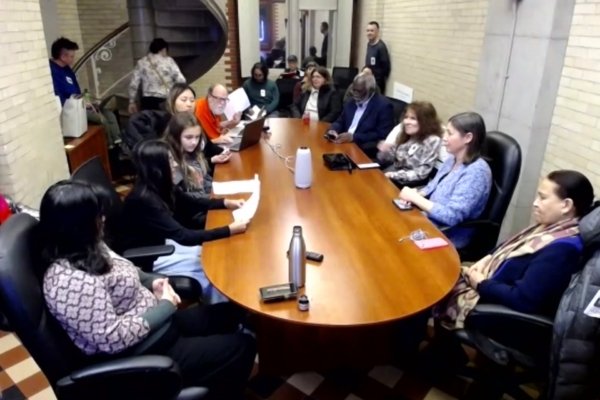On December 13th, 2024, the New York City Panel for Educational Policy (PEP) held a public engagement meeting on the evening of the 11th to discuss whether to renew the contract with NCS Pearson to operate the Specialized High School Admissions Test (SHSAT). The discussion centered around the fairness of the SHSAT exam, contract costs, and the rationale behind the continuation of specialized high schools, with attendees from diverse backgrounds sharing a range of perspectives.
Many supporters believe that the SHSAT is crucial for maintaining the excellence of specialized high schools. Phoebe Gerber, a 7th-grade student from Anderson Middle School, expressed that specialized high schools provide an environment for accelerated learning, allowing students to thrive. She emphasized that if the SHSAT contract is not renewed, thousands of students will lose the opportunity to enter specialized high schools, affecting their future plans and possibly impacting their college applications. While some argue that financial pressures prevent some students from affording test preparation, Gerber noted that there are many cost-effective ways to help students prepare for the exam.
Debbie Cross, Chair of the Citywide High School Council (CCHS) representing 300,000 students and their parents, stated that the existence of specialized high schools depends on objective competitive exams, underscoring the importance of contract renewal for the schools’ continued operation. She highlighted that the SHSAT provides a stable admissions standard for students and families, and without an objective competitive exam, the 8 specialized high schools will be unable to admit new students in the fall of 2026, impacting families across New York City. Last year, 26,000 8th-grade students took the exam, with participation rates among 9th-grade students ranging from 30% to 40%.
However, opponents have raised concerns about the fairness of the SHSAT. Gavin Healy, a member of CEC 2, argued that the exam favors families with resources, excluding disadvantaged students who cannot afford test preparation. Healy further questioned whether the subcontracting plan under the Pearson contract truly benefits minority groups, asking how English Language Learners (ELL) and students with disabilities will be inclusively treated under this new contract.
Some opponents suggested shortening the contract term from five years to one year and revising the contract terms. They proposed using the SHSAT only for the three schools required by state law and exploring other more cost-effective standardized testing options. Additionally, they called for a thorough transparent analysis of the exam, including studies on racial and gender bias, and comparisons between the new computer-adaptive test and the old paper-based test results.
Linda Quarles, Vice Chair of the Citywide High School Council, debunked some misconceptions about the SHSAT exam. She emphasized that the high cost of the contract, around $115 per student, is not a problem. She clarified that NYC Public Schools could not extend the old contract as the test materials were no longer available. While acknowledging Pearson’s underperformance, Quarles highlighted that only two companies participated in the bidding process. She also pointed out that state law mandates SHSAT as the only admission method, stating that computerized testing is not unfair and that paper tests will be provided for students with disabilities and Individualized Education Program (IEP) needs. She urged against politicizing the issue at the expense of students and families, and called for contract approval.
Parent of a 7th-grade student, Yi Fang Chen, urged members to vote for the renewal of the SHSAT contract for five years. She stressed that specialized high schools are treasures of New York City’s public education system, with their successes and numerous alumni proving so. These schools’ success is attributed to impartial, gender and race-neutral objective exams that provide a pathway for social mobility for many immigrant families. She pointed out that the eight specialized high schools represent only a small fraction of the city’s school system, advocating for the expansion of this model rather than weakening its success. Without renewal, resourceful families may opt for private schools or move out of New York City.

